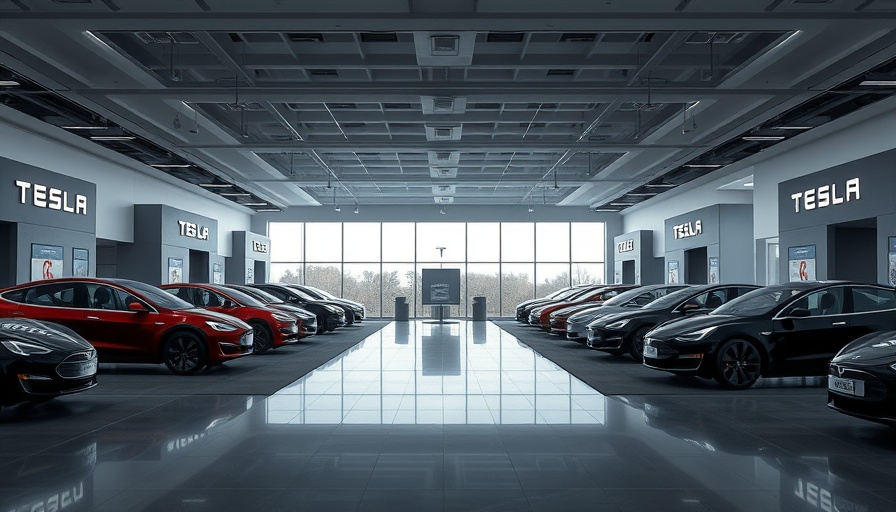
Why Tesla Faces a 40% Sales Drop in Europe
In July, Tesla experienced a staggering 40% drop in sales in the European Union (EU), a concerning trend that challenges Elon Musk's anticipations of a significant recovery. While overall electric vehicle sales surged, Tesla's missteps seem to have overshadowed its position in the booming market. The European Automobile Manufacturers’ Association reports that 6,600 Teslas were sold in July, down from 11,465 the previous year, while competitors like BYD have been gaining traction.
The Impact of Political Backlash
Many attribute this decline to Musk’s political outbursts in Europe, where his comments have alienated potential customers. For instance, he reportedly dubbed a former British prime minister an “evil tyrant” and criticized German political choices directly linked to immigration policies. This backlash not only sparked protests but also seemingly resonated with consumers who define their purchasing decisions through the lens of corporate social responsibility.
Comparative Market Shares: Tesla vs. BYD
In the first seven months of 2025, Tesla captured only 1.2% of the overall car sales in Europe versus BYD's growing 1.1% market share. The rapid ascent of BYD highlights a consumer shift towards brands perceived as more aligned with local interests and sensibilities in comparison to Tesla's global approaches. This shift suggests a fundamental change in consumer behavior concerning brand loyalty, particularly in regions where political affiliations play a significant role.
The Prospects of Regulatory Delays and Product Positioning
Another element detrimentally impacting sales has been Tesla’s reliance on regulatory approval delays for its advanced driver-assistance features that are already ingrained in the U.S. market. This extended wait suits neither the company’s innovative brand image nor the expectations of the European consumer base looking for cutting-edge features. Furthermore, earlier factory closures for retooling their bestselling Model Y SUV have contributed to the weaker market presence.
Future Trends and Opportunities
Looking ahead, Tesla aims to rejuvenate its sales trajectory with the introduction of more affordable models later this year. As market dynamics shift, Tesla's ability to adapt to consumer expectations and local preferences will be crucial. The company's future hinges not just on product innovation but also on how effectively it navigates the intertwined issues of market share, brand perception, and political sentiments.
In this volatile environment, business professionals should remain vigilant to the evolving trends within the automotive industry, especially concerning consumer behavior and competitive strategy. The readjustment of Tesla and other companies like BYD could redefine market leadership in the electric vehicle sector.
 Add Row
Add Row  Add
Add 



Write A Comment